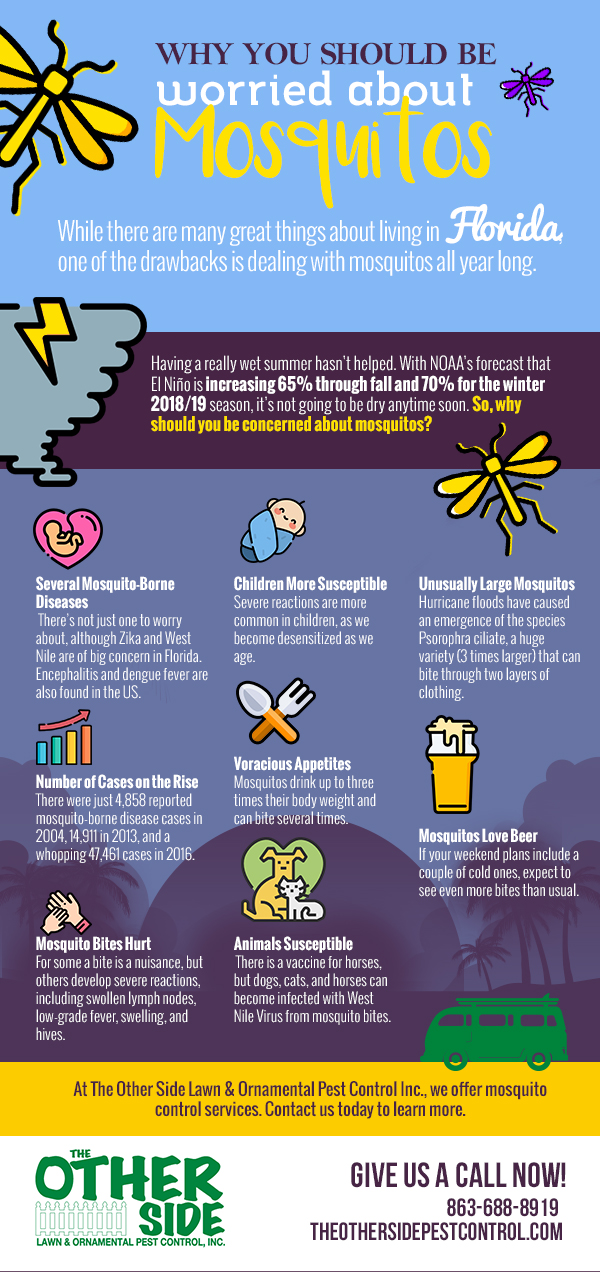Pest-Proofing Your Garden: Tips For Maintaining Outside Parasites At Bay
Pest-Proofing Your Garden: Tips For Maintaining Outside Parasites At Bay
Blog Article
Posted By-Vang Fyhn
Envision your yard as a sanctuary, an area of harmony and elegance. Nonetheless, Suggested Webpage of outdoor insects can quickly disrupt this idyllic photo. What happens if there were straightforward yet effective methods to keep these undesirable visitors away and shield your garden sanctuary? By a fantastic read to a few sensible ideas and executing natural techniques, you can produce an unified outside space where your plants can grow undisturbed.
Natural Pest Deterrents
To maintain bugs far from your yard naturally, plant aromatic natural herbs like mint and lavender. These great smelling plants not just add appeal to your yard yet likewise function as efficient insect deterrents. Insects like insects, flies, and also some garden-damaging insects are warded off by the strong aromas produced by these natural herbs. Just positioning them purposefully around your garden can assist produce a natural barrier versus undesirable insects.
In addition to mint and lavender, take into consideration planting various other herbs like rosemary, basil, and lemongrass to further boost your garden's pest-proofing abilities. These natural herbs not just act as natural repellents yet also have the added advantage of being useful in food preparation or crafting self-made treatments.
Strategic Plant Placement
Think about the format of your yard and the kinds of plants you need to strategically place them for optimum pest-proofing effectiveness.
Begin by grouping plants with similar resistance to bugs together. By doing this, you can develop a natural barrier that discourages parasites from spreading throughout your yard.
Furthermore, placing pest-repelling plants like marigolds, lavender, or mint near more susceptible plants can help protect them. High plants, such as sunflowers or corn, can act as a guard for shorter plants versus parasites like rabbits or ground-dwelling insects.
Remember to leave sufficient room in between plants to boost air blood circulation and decrease the threat of diseases that pests might lug.
Additionally, take into consideration planting strong-smelling natural herbs like rosemary or basil near at risk plants to perplex insects' senses and make it harder for them to situate their targets.
Effective Bug Control Methods
For combating garden parasites successfully, carrying out a multi-faceted pest control method is important. Start by motivating all-natural predators like birds, ladybugs, and praying mantises to aid maintain bug populations in check. Introducing https://raccoonremovalspecialists27160.blogdosaga.com/26518556/dealing-with-an-insect-infestation-actions-for-emergency-situation-insect-control that draw in these helpful insects can assist in parasite control. Additionally, exercising good garden hygiene by removing debris and weeds where bugs could conceal can make your yard less friendly to undesirable visitors.
Think about using physical obstacles such as row cover fabrics or netting to shield vulnerable plants from parasites like caterpillars and birds. Applying natural pesticides like neem oil or insecticidal soap can also work against certain parasites while being much less damaging to advantageous pests and the environment. It's critical to turn your crops each season to stop the build-up of pest populaces that target certain plants.
Regularly examine your plants for indications of bug damages so you can act without delay. By combining these techniques and remaining cautious, you can properly manage yard insects and enjoy a growing, pest-free garden.
Verdict
So, there you have it - with the appropriate approaches, you can keep pesky exterior insects away from your yard and help your plants thrive.
Did you understand that growing mint has been shown to push back mosquitoes and various other insects, decreasing the need for dangerous pesticides by approximately 60%?
By incorporating all-natural deterrents and wise growing strategies, you can develop a stunning and pest-resistant yard sanctuary for you to enjoy.
